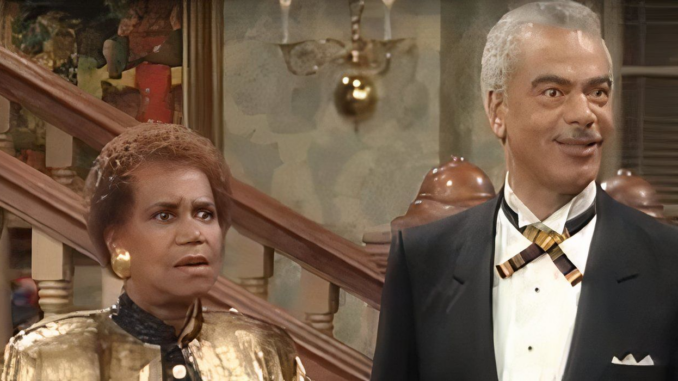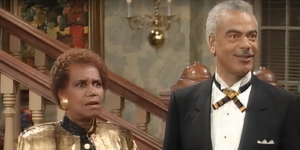
While the Huxtables had great chemistry on-screen, the relationships between the cast members off-screen were just as fascinating. Over the years, stories have emerged about the behind-the-scenes dynamics of The Cosby Show, some of which will shock even the most dedicated fans.
1. The Real-Life Feud That Almost Tore the Cast Apart
While the Huxtables seemed like the perfect family, things were not always harmonious behind the scenes. Bill Cosby, as the show’s creator and star, had a very specific vision for the series, and his leadership style was often described as dictatorial. He pushed his cast members hard, especially the younger actors, to deliver performances that matched his exacting standards.
This intensity sometimes led to tension, particularly with Lisa Bonet, who played Cosby’s daughter Denise. Bonet, who was one of the breakout stars of the show, often clashed with Cosby over her character’s storyline. Cosby had a specific path in mind for Denise, but Bonet wanted to take her character in a different direction. This created friction between the two, and it’s well-documented that Bonet’s real-life personality sometimes clashed with Cosby’s authoritarian approach to the show.
Eventually, this tension became so significant that Bonet took a brief leave from the show in season 4, leading to a storyline where Denise left for college. Though she returned later, the drama behind her departure had a lasting impact on the cast dynamics.
2. What Bill Cosby Did to Shape His Co-Stars’ Careers
Despite the drama, Cosby played a pivotal role in launching the careers of many of the show’s young stars. He was incredibly supportive of his co-stars, particularly those who were just starting out in the industry.
For example, Phylicia Rashad, who played Clair Huxtable, had been in the theater for years but was relatively unknown when she was cast on the show. Cosby personally advocated for her role, recognizing her talent and potential. Similarly, Malcolm-Jamal Warner (Theo Huxtable) and Tempestt Bledsoe (Vanessa Huxtable) both benefitted from Cosby’s mentorship and support during their careers.
However, Cosby’s control over the show meant that he didn’t always allow the cast members to step out of the shadows of their characters. As much as he helped their careers, he also limited their opportunities to fully break away from the Cosby Show brand.

These articles delve deep into the groundbreaking aspects of The Cosby Show and the complex, sometimes contentious, relationships behind its success. They reveal that the show was not just a beloved sitcom but a cultural milestone that forever changed how race, class, and family are portrayed on American television.
